Mid-Exam
| Posts about Bernoulli which I added on Facebook. Newest posts at the top of the list |
| Bernoulli, part 10 answer question two. Video is a bit quick and dirty |
| Bernoulli, part 9 answer question one. Video is a bit quick and dirty |
| Bernoulli, part 8 question two Situation after a earthquake. Calculate discharge in tube. 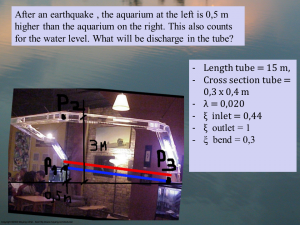 |
| Bernoulli, part 8 question one. Calculate the pressure at P2 in the tube. 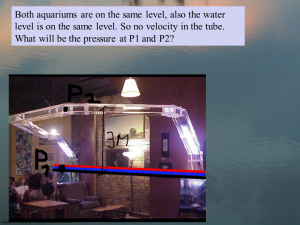 |
| Bernoulli, part 8 – preparation, took a look at this special fish tank. What is happening in the tube from the viewpoint of Bernoulli. Assume there is no water flowing in the tube.Link to pictures special fish tank |
| Bernoulli, part 7. In which situations do you know the y (pressure head) 1. When the pressure is given in Pa 2. With open water, y is distance to the free water surface. Si if you know the water level , you know y. 3. With a small hole , y is zero. 4. With free vertical outflow, pressure is zero. More ideas? 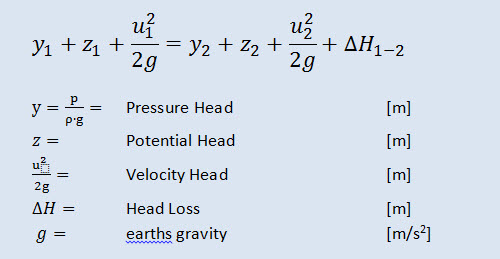 |
| Bernoulli, part 6. Keep in mind, high velocity = low pressure, low velocity = high pressure |
| Bernoulli, part 5. Probably only clear for students who have been in the water lab. High velocity , low pressure. So at the weir, the water level drops a bit. 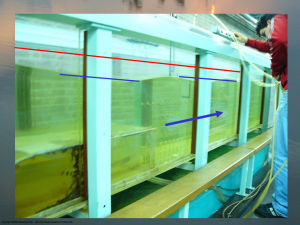 |
| Bernoulli, part 4 Take a look at this video from lecture 3 through the Bernoulli eyes. Because you find the z , y , H and velocity visualized in the animation. Reference line is the bed of the channel. |
| Bernoulli, part 3 Concepts used in course 1. Energy (H) is expressed in m. Also called Total Head 2. Kinetic energy = velocity head = (u^2)/2g expressed in m 3. Potential energy = potential head + pressure head = z + y expressed in m 4. potential head (z) is distance from reference line to point 5. pressure head (y) is distance from point to free surface (pressure line) 6. Distance between pressure line en total head (or energy line) is always the velocity head = (u^2) /2g |
| Bernoulli, part 2. The easy way: high velocity = low pressure low velocity = high pressure Sounds simple, but often is contra intuitive |
| Bernoulli, part 1 Who was Bernoulli? He even has Dutch roots. 🙂 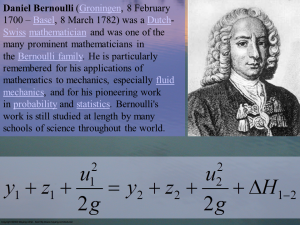 |
| Message from the lecturer, 22-3-2013 |

Leave a Reply